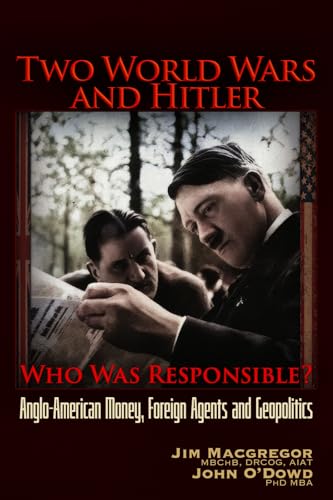
The War that Ended Peace
by Margaret MacMillan
"How Europe Abandoned Peace for the First World War"
Popularity
3.49 / 5
* A book's popularity is determined by how it compares to all other books on this website.
Where to buy?
Buy from Amazon* If you buy this book through the link above, we may receive a small commission at no extra cost to you.
The War that Ended Peace by Margaret MacMillan
Details
War:
World War I
Perspective:
Researcher
True Story:
Yes
Biography:
No
Region:
Europe
Published Date:
2014
ISBN13:
9781846682735
Description
Main Themes and Topics
"The War that Ended Peace" by Margaret MacMillan delves deeply into the complex tapestry of events, decisions, and personalities that led to the eruption of the First World War in 1914. A central theme in the book is the fragility of peace and the myriad factors that contributed to its eventual breakdown. MacMillan explores the significant political, social, and technological changes during the late 19th and early 20th centuries, highlighting how these shifts set the stage for war. The book places significant emphasis on the balance of power in Europe, the arms race, imperial rivalries, and the complex web of alliances. Through these lenses, MacMillan examines how both major and minor events, as well as human failings, led Europe away from a period of optimism and progress into a catastrophic conflict.
Writing Style and Tone
Margaret MacMillan is known for her engaging and accessible writing style, and in "The War that Ended Peace," she once again delivers a narrative that is both informative and compelling. Her tone is scholarly yet approachable, making complex historical events understandable for a wide readership. MacMillan skillfully weaves together a variety of sources and perspectives, providing a nuanced view of history that respects the complexity of the subject matter. Her ability to humanize historical figures and present their motivations and actions in a relatable way adds depth and texture to the historical analysis.
Awards and Recognition
"The War that Ended Peace" has been widely recognized for its scholarly contribution to the understanding of the First World War's origins. The book was longlisted for the 2013 Samuel Johnson Prize, one of the most prestigious awards for non-fiction writing in the United Kingdom. Critics and scholars alike have praised MacMillan for her meticulous research and her ability to create a vivid and authoritative account of the events leading up to the Great War.
Criticism
While "The War that Ended Peace" has been lauded for its comprehensive and detailed narrative, some critics have noted its extensive scope and the sheer number of figures and events covered, which can occasionally overwhelm readers. A few reviews mentioned that the book's richness in detail sometimes comes at the expense of a clear, singular narrative thread. However, these criticisms are often countered by praise for the depth and thoroughness of MacMillan's research and analysis.
Brief Summary (no spoilers)
"The War that Ended Peace" provides a sweeping examination of the events leading up to World War I, starting from the early 19th century and culminating in the assassination of Archduke Franz Ferdinand. MacMillan guides readers through an era of immense political and technological change, where decisions were influenced by a tangle of international alliances, national ambitions, and individual personalities. The book explores how a Europe characterized by confidence and progress gradually found itself on the brink of a devastating conflict, revealing the fragile nature of peace and the complexity of historical causation.









